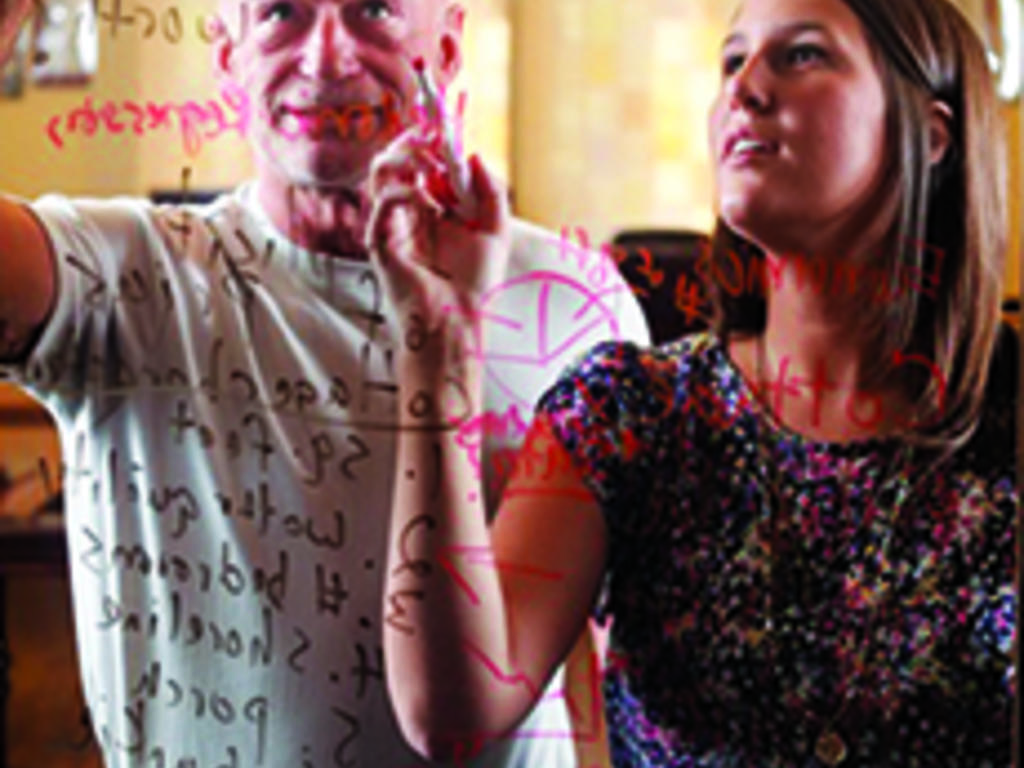By Caroline Ponseti ’15
In the publish or perish world of academia, it’s not uncommon for a Rhodes student to find scholarly research authored by her professor. But she can find even more familiar names among certain economics journals—those of her peers—thanks to the efforts of the Robert D. McCallum professor of economics Steven Caudill.
Thirteen students in Caudill’s three most recent senior seminar courses have had 14 papers accepted for publication in the very journals that they read for their own coursework. “These are not student journals,” Caudill explains. “These are journals that other PhD economists are publishing in.”
Caudill, who shares co-authorship with his students, works closely with his senior seminar participants through several drafts of their research and adds his own professional touches to the final drafts. Julia Clapper ’12 collaborated with Caudill on her research on water quality in Ontario lakes. The research was published in a top-tier economics journal.
Dr. Caudill’s mentorship during the whole research paper process was invaluable because we had never written a graduate-level research paper,” she says. “He required us to check in with him to make sure we were on the right course, and he would steer us back to the right direction.”
Caudill stresses the professional benefits that these students receive from being published as undergraduates. “Students learn what it is we professors do and get something to put on their résumé that sometimes the people interviewing them for jobs don’t even have,” he says.
Clapper now uses the data analysis skills she learned in her undergraduate research in her role as an assistant buyer for AutoZone. “Undergraduate research is one of the unique things that Rhodes has to offer,” she says. “It makes you marketable to graduate schools because they know you’re capable of doing high-level research, and it makes you marketable to employers because you’re a published economist, essentially.”
Both the students and Caudill benefit from their collaboration in senior seminar. “I get research done that I might not have had time for otherwise,” he says. “The activity makes me work closely with students and makes it much easier for me to write letters of recommendation for them. I can talk about the quality of the work the student did. That’s a much stronger letter than just talking about a student’s grades and GPA.”
Clapper agrees: “One of the benefits of Rhodes in general is having this unique relationship with your professors.”
